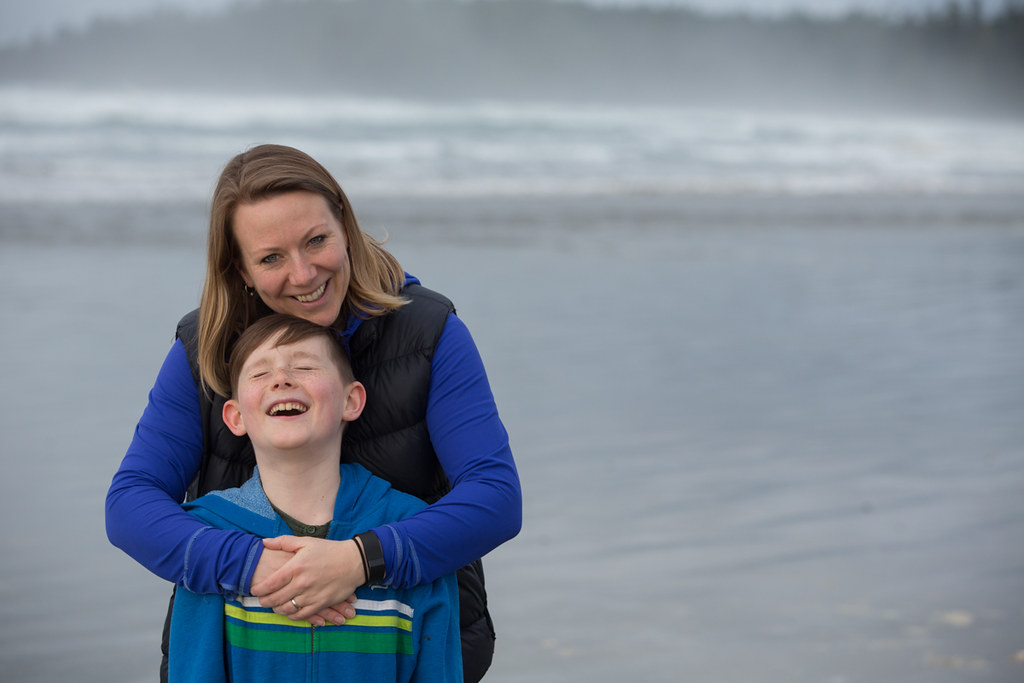I feel like we finally just got everyone sleeping through the night and now we're on to this whole new stage: The Preteen Years. I know how hard things were for me being a teenager so if we can work on developing their self-esteem and building a stronger relationship with them now, that should help our kids as they transition through these stages. Our son could be heading off to university in eight years–that's not a whole lot of time left to invest in him before he leaves (and hopefully it's not far!).
I recently read How to Hug a Porcupine: Negotiating the Prickly Points of the Tween Years to gain some insight into this stage. This book has some great ideas and although I wouldn't say the examples were always realistic, I did think it was helpful and I would love to share some tips with you.
Five Tips on Parenting Tweens (as gleaned from How to Hug a Porcupine)
1. Focus on strengthening our relationship with our tweens. When they are teenagers we can't make them do anything so we need to rely on our relationship. We need to transition from a short-range parenting (keeping them alive and basic skills) to a long-range style which involves a shift from protecting them to preparing them. A solid relationship involves respect (unconditional love), support, reciprocity (both needs recognized), and collaboration.
2. The middle school years can be likened to a chrysalis. When a butterfly pupa is wrapped in it's cocoon it is changing and preparing for the next stage. It needs to be protected and it needs time. Often tweens will protect themselves by focusing inwards and there may be anger, tears, and sensitivity. Give them space and time but be present.
3. "Seek first to understand, then be understood"–Stephen R. Covey of The Seven Habits of Highly Effective Families. I love this one. Listen with your heart and pay attention to what they are really saying; behaviour and their tone of voice will give you great clues–even if it's sitting with them while they play video games.
4. Writing is a great way to communicate. Whether I was frustrated with my parents or wanted to tell them how I much I appreciated them, I would write it in a note to them. Often it's easier to be vulnerable and thoughtful in this manner and it comes across as more believable. Keep it short and simple, avoid criticism, acknowledge abilities, and encourage them. My son and I have a journal that we share: I ask him questions and he responds–it allows for safe communication.
5. Natural consequences to poor decisions are okay and important for growth. Let them learn for themselves unless it involves danger. Struggle allows them to build self-esteem–you don't want to help the butterfly out of the cocoon before it's ready (I love that analogy)! Kids will learn how to problem solve and we need to step back sometimes...when we are fearful we need to ask ourselves if it is probable or is it possible that something bad will occur. Limit your advice and "sandwich" your concerns with a positive statement.
The book covers many other topics like defiance, sibling rivalry, and peer pressure and I found it a great introduction to these tween years! For those who have been through it, what tips do you have to add? Do you have any other books you would recommend?
Love,
Louise
Pin here for later:
.jpg)


I think it is so important to try first to understand... with preteens and teens as well as with littles... to know why they're acting out. It helps me have a lot more grace as opposed to reacting in frustration if I can take a step back and realize why. Also I LOVE the idea of a notebook. I definitely communicated the big stuff more in writing with my mom and I love that you've started this open dialogue with your son already!
ReplyDeleteTotally! I feel like often parents see kids as though they are misbehaving because they want to be "bad"-usually they are expressing a need (or unmet one). So glad you see this already!
DeleteLove this post Louise. Even though we aren't there yet with our own family, I know just how quick these years pass by. My oldest is 7 and I can already feel the changes happening and he is becoming a little bit less 'mine' and more of his own person.
ReplyDeleteThank you, Andrea! This stage just crept up on us too! Always more to learn, right? My middle is 7, such a unique age, I really do like it. Hope the back to work transition is going well!
DeleteSo tricky! Good job learning as much as you can and being so intentional. I know where to come in 10 years!!
ReplyDeleteOh man. I read this with guilt as there seems to be a lot of "you WILL practice piano/do dictee" etc in our house these days. Need to figure out how to motivate without screeching.
ReplyDeleteA book I really enjoyed (not "just be perfect, but practical") that is just reminded myself to take out again is "confident parents raising remarkable children". It highlights how our kids want to (and need to) be successful in their own eyes and how we can reframe questions or situations in light of that.
Now to go get it out....
I'll have to check that one out. Love a good recommendation. Fingers crossed the library has it.
Delete